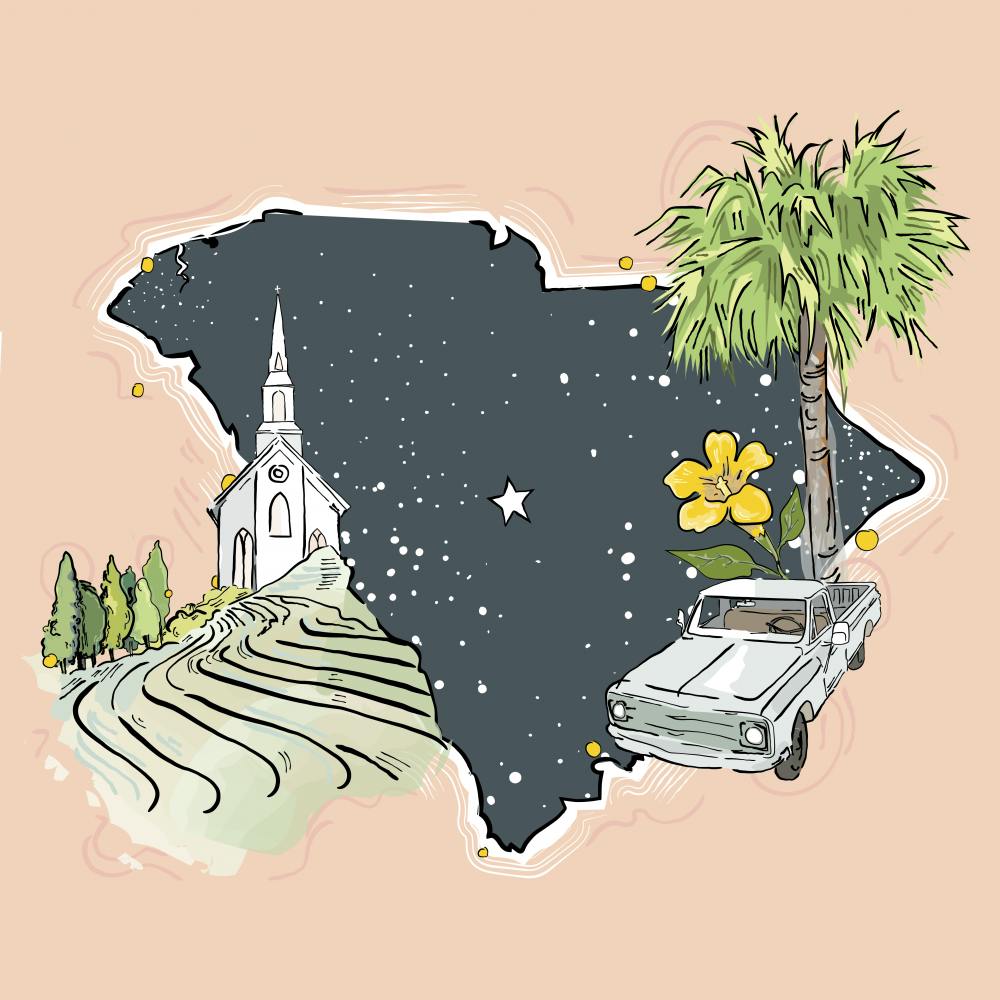The American South is hard to define. It is a geographical region as well as a cultural identity. The South exists because of how people think of their own southern identification, but what states are southern? Or not southern enough?
People debate over what states are Southern. Which states evoke images of heavy heat above still palm trees, skylines dotted with church steeples, wide plantations and pickup trucks? I asked University of South Carolina students originating from different states and countries to think about what it means to live in the South and why they chose to go to school at The University of South Carolina.
Each southern state has its own character and identity, which can be affected by location, landscape and general stereotypes.
A fourth-year student from North Carolina – who wished to remain anonymous – had very clear-cut descriptions for the South. She defined it as being made up of three specific parts: the Appalachian South (the Carolinas, Virginia, West Virginia and Tennessee) and the Deep South (the Gulf Coast up to Arkansas), she then accounts that Florida, Texas and certain cities are within the South but have different environments and attitudes.
Stephen Bellantuono, a student from Connecticut, disagreed.
“I would consider South Carolina within the ‘Deep South,'” he said. Yet Bellantuono agreed cities should be categorized differently: “I wouldn’t really put Columbia in that category. With it being more urban, I would classify it as a city with strong, southern influence and rich American history.”
Living in the South, everyone is highly conscious of who their neighbor is. North and South Carolinians live in close proximity, and people from these areas often attend one another’s universities and form opinions about each other.
"I think, overall, the feel of these states is very different. I feel like South Carolina is more country and rural and North Carolina has more cities and less “southern” tendencies," said Sarah Jordan, a third-year student from North Carolina.
“Of course, there are exceptions in different parts of each state, but overall I think the general thought is that South Carolina is more southern.” English major Benno Sauermann added.
He clarified his statements about North Carolina.
"North Carolina contains the research triangle, which is the grouping of the three universities: North Carolina State, University of North Carolina at Chapel Hill and Duke," Sauermann said. "This community of multiple research universities in such close proximity creates well known urban areas for the state."
Because there are more research universities close together in North Carolina, there is more opportunity for urbanization. In this sense, to be "southern" is closely related to a state's number of rural areas.
Other students who travel even greater distances than from our northern neighbors are aware of a distinct southern culture in South Carolina. Once freshmen arrive from states away, differences jump out.
Hunter Hatch, a USC fourth-year student from Wyoming, said, “As someone who spent most of my life growing up in the West, I knew I was in the South as soon as I saw the palm trees. As a freshman, I felt like I was on a beach vacation for the first few weeks.”
Hatch elaborated that he notices daily kindnesses as a common southern theme.
“Things like holding doors and saying, ‘excuse me’ aren’t always commonplace in other places that I’ve lived before,” he said.
While the South has many wonderful traditions, sometimes a darker, less-welcoming side can show. Slavery and racism affect people's ideas of the states below the Mason-Dixon line, even those who are not originally from America.
“I've often felt under the radar when it comes to experiencing racism as violence … more like misunderstandings that I think are rooted in others' lack of interaction with Asian people and culture,” said Mikki Antonio, who was originally born in the Philippines, but moved to Loris, SC, when she was six. She said she sometimes felt like an outsider in her small town.
“I had no personal ties to southern traditions, but just existed near them. I would go to birthday parties and sleepovers, but wasn't really part of the culture in the sense that I had a strong southern community,” Antonio said.
Our pasts affect our present, yet when asked about what makes South Carolina home, students gave answers that would make any city, regardless of its place on a map, home: “having to do things like buy my own groceries, pay utility bills and get a part time job;” “a strong network of friends;” “a lively city with opportunity." The University of South Carolina is attended by people from multiple states and countries. Each have their own perspectives and stories.
Collectively we can attempt to define our identity and future. Together, we learn to see ourselves “as part of the conversation,” Antonio said. We are in conversation all the time, redefining what it means to be southern and what it means to live in South Carolina.



